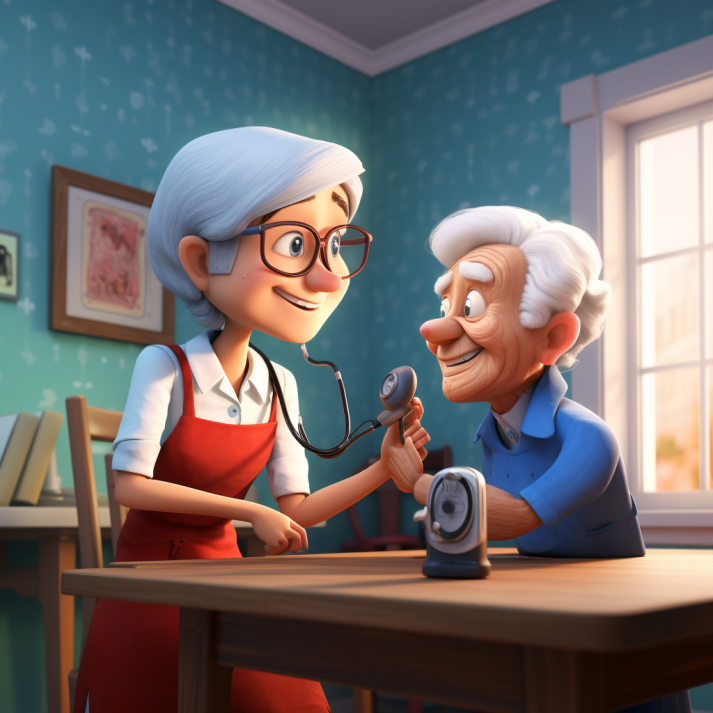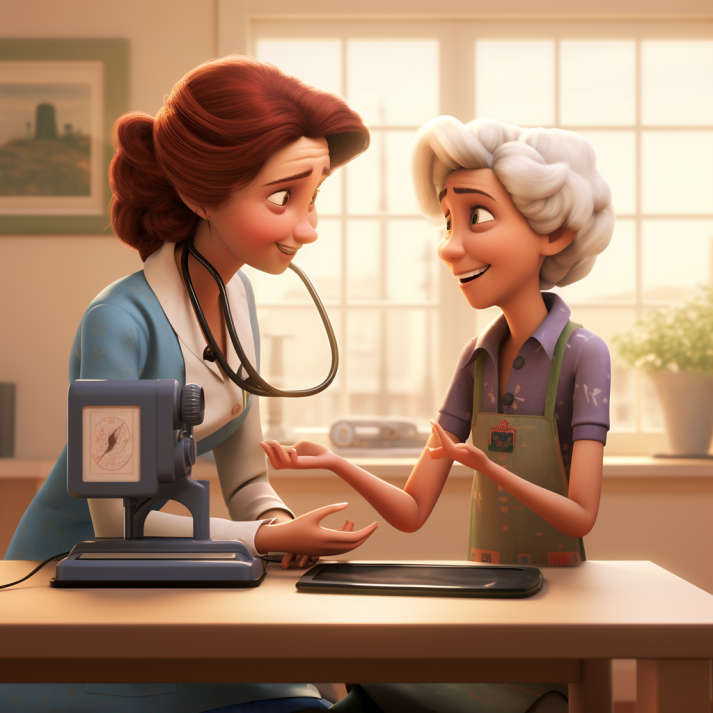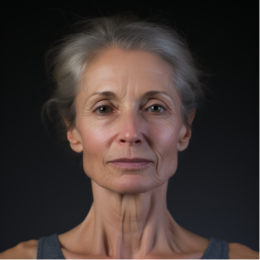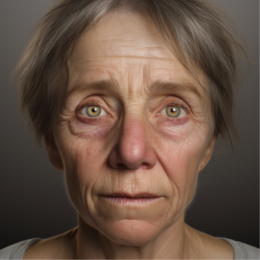10 Ways to Improve Health In Seniors Living With High Blood Pressure

In recent years, the prevalence of high blood pressure, or hypertension, in seniors has reached alarming levels.
Statistics:
- The Centers for Disease Control and Prevention (CDC) reported in 2021 that nearly two-thirds of Americans over the age of 60 were living with this condition.
- Moreover, the CDC also estimated that only about 24% of these individuals had their condition under control.
It’s vital for seniors and their caregivers to understand the importance of managing high blood pressure and adopt strategies for improvement.
Importance of Managing High Blood Pressure in Seniors
Statistics:
- High blood pressure puts significant strain on the heart and blood vessels, increasing the risk of heart disease and stroke — the leading causes of death worldwide.
- According to the World Health Organization, these two conditions accounted for a combined 15.2 million deaths in 2019.
It also contributes to other serious conditions, including kidney disease and dementia. Therefore, it’s essential for seniors with high blood pressure to take steps to manage their condition.
10 Ways to Improve Health In Seniors Living With High Blood Pressure
Dealing with High Blood Pressure
The American Heart Association reports that prolonged high blood pressure can damage the blood vessels and heart, leading to heart disease, heart failure, and stroke.
Statistics:
- As reported by the American Heart Association, uncontrolled high blood pressure contributes to nearly half of all heart disease-related deaths in the U.S.
- Moreover, over 75% of first-time stroke victims have blood pressure higher than 130/80.
Fortunately, lifestyle changes and proper medical management can significantly reduce these risks.

Regularly Monitor Blood Pressure
Regular blood pressure monitoring is crucial.
Statistics:
- According to the American Medical Association, home monitoring of blood pressure results in a nearly 50% higher success rate in managing hypertension than office visits alone.
- Furthermore, individuals who monitor their blood pressure at home are 40% less likely to experience a stroke or heart attack.
Using a home blood pressure monitor and keeping regular appointments with healthcare professionals enables better management of blood pressure.
Take Medicine
For many seniors, lifestyle changes alone may not be enough. The National Institute on Aging suggests that medication, as prescribed by a healthcare provider, is often necessary. It’s crucial to follow the prescribed regimen, as missing doses can lead to increased blood pressure and associated complications.
Maintain a Healthy Weight
Maintaining a healthy weight is essential. Research published in The Lancet showed that a 5 kg decrease in body weight could reduce systolic blood pressure by 4.4 mm Hg and diastolic pressure by 3.6 mm Hg. Seniors should aim to maintain a body mass index (BMI) within the healthy range.
Eat Healthy Food
A heart-healthy diet can make a significant difference. A 2017 study found that the Dietary Approaches to Stop Hypertension (DASH) diet, rich in fruits, vegetables, and low-fat dairy products, reduced systolic blood pressure by an average of 11.4 mm Hg.
Use Less Salt
Reducing salt intake can lower blood pressure. The World Health Organization recommends limiting salt intake to less than 5 grams per day. This can be achieved by avoiding processed foods and not adding extra salt to meals.
Do Exercises
Regular exercise is crucial.
Statistics:
- A 2019 meta-analysis showed that moderate-intensity exercise can reduce systolic blood pressure by an average of 5 mm Hg and diastolic pressure by 3.2 mm Hg.
- Importantly, regular exercise also lowers the risk of cardiovascular disease by up to 25%.
Do Not Smoke
Smoking increases the risk of high blood pressure and heart disease. The CDC reports that quitting smoking can lower blood pressure and heart rate almost immediately.
Drink Less Alcohol
Drinking alcohol in moderation is key. The American Heart Association suggests limiting alcohol to one drink per day for women and two for men. Overindulging can raise blood pressure and reduce the effectiveness of blood pressure medications.
Manage Stress
Chronic stress can contribute to high blood pressure. A 2015 study published in the journal Current Hypertension Reports highlighted the importance of stress management techniques, such as meditation, deep breathing, and yoga, in lowering blood pressure.
Incorporate Other Healthy Lifestyle Habits
Lastly, other lifestyle habits like getting enough sleep, staying hydrated, and regular check-ups can also contribute to managing high blood pressure effectively.
Conclusion
Managing high blood pressure in seniors is a multifaceted approach that requires lifestyle changes, medical intervention, and constant monitoring. Implementing these measures can significantly improve the health and quality of life for seniors living with high blood pressure.
References
- Centers for Disease Control and Prevention. (2021). High Blood Pressure. CDC.
- World Health Organization. (2021). The top 10 causes of death. WHO.
- American Heart Association. (2021). High Blood Pressure. AHA.
- American Medical Association. (2021). Importance of Home Blood Pressure Monitoring. AMA.
- National Institute on Aging. (2021). High Blood Pressure. NIA.
- Neter, J.E., et al. (2003). Influence of Weight Reduction on Blood Pressure. The Lancet.
- Sacks, F.M., et al. (2017). Effects on Blood Pressure of Reduced Dietary Sodium and the Dietary Approaches to Stop Hypertension (DASH) Diet. New England Journal of Medicine.
- World Health Organization. (2021). Salt reduction. WHO.
- Cornelissen, V.A., & Smart, N.A. (2019). Exercise Training for Blood Pressure: A Systematic Review and Meta-analysis. Journal of the American Heart Association.
- Centers for Disease Control and Prevention. (2021). Smoking and Heart Disease and Stroke. CDC.
- American Heart Association. (2021). Alcohol and Heart Health. AHA.
- Steptoe, A., & Kivimäki, M. (2015). Stress and cardiovascular disease: An update on current knowledge. Current Hypertension Reports.





